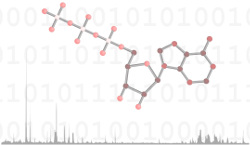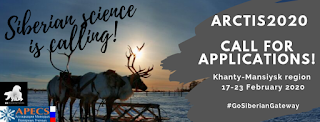Where: Northumbria University, Newcastle
When: Monday, 25 November 2019
Organisers: Dr. Paul Mann (Northumbria University) and UK Science and Innovation Network in Russia
Registration is open until 21 November, please email: Dr. Paul Mann, Northumbria University (paul.mann@northumbria.ac.uk ) and copy in Tatiana Iakovleva, Head of UK Science and Innovation Network in Russia (tatiana.iakovleva@fco.gov.uk). Please, indicate if interested in giving a talk on your research and the broad topic.
The workshop is an opportunity to hear directly from a group of Russian scientists from Lomonosov Moscow State University on current Arctic-related research at the White Sea Marine Biological Station as well as learn about the facilities and capabilities of the research infrastructure and explore opportunities for engagement in the Russian Arctic. The workshop aims to develop active collaborations between UK and Russian scientists across a range of disciplines within the aquatic and marine sciences (e.g. ecology, biogeochemistry, microbiology, palaeoclimate).
The workshop will feature:
- A series of science talks about ongoing research projects and work in the Russian Arctic delivered by Lomonosov Moscow State University scientists
- A series of science talks on relevant Arctic marine research by UK-based scientists
- A talk by Head of the UK Science and Innovation Network in Russia (SIN Russia) on the role of SIN and practical opportunities for Arctic science engagement in Russia
- Discussion involving speakers and participants
For more information on the White Sea Biological Station of Lomonosov Moscow State University, please visit http://en.wsbs-msu.ru/
More information on the Russian participants
1. Dr. Svetlana Patsaeva, Associated Professor, Faculty of Physics, M.V.Lomonosov Moscow State University
Dr. Svetlana Patsaeva graduated from Faculty of Physics, Lomonosov Moscow State University (1985) and received Ph.D. in physics from the same university with dissertation "Inverse problems of Raman scattering spectroscopy of liquid water" (1989). As a group leader Dr. Patsaeva is working at the Laboratory of Molecular Luminescence and Spectroscopy dealing with development and application of spectral techniques for environmental monitoring.
Research interests: Fluorescence spectroscopy of organic molecules, chromophoric dissolved organic matter (CDOM) and humic substances, (bacterio)chlorophylls, anoxygenic phototropic microorganisms, development and application of non-invasive spectral techniques for environmental monitoring
Current research projects:
Contribution of biological and abiotic factors to the formation of physicochemical gradients in coastal meromictic water bodies of marine origin;
The nature and mechanisms of fluorescence of chromophoric dissolved organic matter (CDOM) in natural waters;
Determination of the structure of fluorophores and mechanisms responsible for the fluorescent properties of soil humic substances;
Fluorescence of bacteriochlorophylls in chlorosomes of green sulphur bacteria;
Luminescent europium complexes with N-donor heterocyclic ligands.
Dr. Elena Krasnova, senior researcher at the White Sea Biological Station of the Lomonosov Moscow State University
Dr. Krasnova graduated from Lomonosov Moscow State University, Faculty of Biology, Department of Invertebrate Zoology. Since 1987 - an employee of the White Sea Biological Station of Moscow State University. In 2003 defended PhD thesis: "Ecology of the free living marine nematode Metachromadora (Chromadoropsis) vivipara (De Man 1907) in the White Sea, specializing in Zoology. Dr. Krasnova has organised and since 2016 has been conducting a scientific seminar "Interdisciplinary studies of meromictic lakes and lagoons separated from the White Sea". The research organised by Dr. Krasnova involved the student groups of the Biological and Geographical Faculties and the Faculty of Bioengineering and Bioinformatics of Moscow State University, as well as departments of biophysics, hydrobiology, plant physiology and bioengineering within the faculty of Biology of Moscow State University during their White Sea field practices.
Research interests: Ecological structure of salt meromictic lakes separating from the White Sea; ecology of free-living nematodes of the White Sea intertidal zone; meiobenthos population structure, influence of the aquatic environment; protection of birds; implementation of sustainable environmental management
Current research projects focus on ecological succession in coastal stratified lagoons and lakes formed by isolation of marine water areas from the sea. Since 2008, Dr. Krasnova is the coordinator and leader of a large interdisciplinary research project "The study of the transit ecosystems of water bodies that in progress of their isolation from the sea". This project brings together researchers from several research institutions.
Anna Zhiltsova, Ph.D. student, Faculty of Physics, M.V. Lomonosov Moscow State University
Anna Zhiltsova graduated from Faculty of Physics (General physics department), Lomonosov Moscow State University and holds a bachelor's degree (2017) and a master's degree (2019) in physics with dissertation "Fluorescence of chlorosomal bacteriochlorophyll: basic patterns and influence of environmental parameters". During four years Anna Zhiltsova has worked at the Laboratory of Molecular Luminescence and Spectroscopy dealing with development and application of spectral techniques for environmental monitoring.
Research interests: Fluorescence spectroscopy of bacteriochlorophylls, environment monitoring using spectral methods, anoxygenic phototropic microorganisms, meromictic water bodies.




